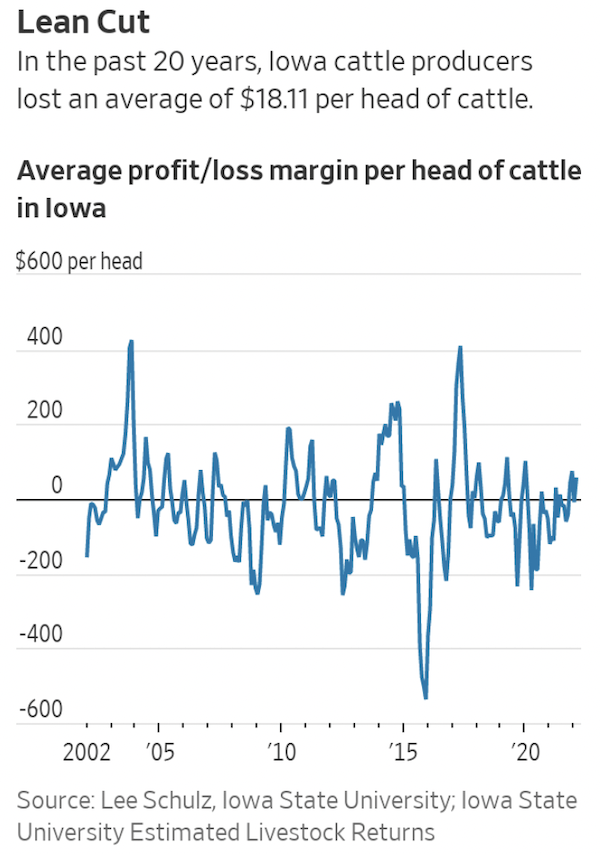Sustainable Beef LLC is getting a big boost from Walmart to build its new facility in North Platte, Nebraska. The world’s largest retailer will take a minority stake in the $325 million meatpacking plant slated to begin operations by late 2024. Walmart will also get the majority of the beef produced at the plant, guaranteeing a consistent supply for the company and a reliable marketplace for Nebraska beef producers.
David Briggs, CEO of Sustainable Beef, says the plant will ultimately process about 1,500 head a day. Those supplies can then be easily and quickly delivered to the massive Walmart Distribution Center that is less than 2 miles away. Earth-moving at the plant site is expected to begin this month with a formal groundbreaking set for October 4.
Sustainable Beef LLC was formed in early 2021 by a group of ranchers and feedlot owners that decided to take matters into their own hands after struggling for years to survive low cattle prices. The pandemic further exacerbated the financial strains, despite the fact that US consumers were paying record-high beef prices. According to estimates from Iowa State University, from March 2020 through December 2021, Iowa cattle feeders experienced just five months of profitability. As Sustainable Beef co-founder Rusty Kemp explains, “The whole industry was motivated to do something.”
In late 2020, Kemp and six other cattle rancher families began working to raise money for a new processing facility, which would eventually become Sustainable Beef LLC. The group signed a contract with the city of North Platte in March 2021 to build the plant.
Trey Wasserburger, a North Platte rancher and investor in Sustainable Beef, points out that the area desperately needs the alternative. In the last five years, 95% of his cattle was bought by just one of the four big meat companies and the rest by a second. “We pride ourselves in feeding some of the best cattle on the market and it still isn’t enough to get multiple buyers,” Wasserburger told The Wall Street Journal. Sustainable Beef says it plans to pay producers a premium for high-quality cattle.
The plant will provide 875 direct jobs, which could be a challenge in the currently tight job market. But Sustainable Beef thinks what it has to offer will help lure workers. Company officials said the plant will be more spacious than others, won’t have night shifts, and will pay workers starting wages of about $50,000 a year. That compares to the average wage of around $31,000 for similar jobs.
Briggs says they first approached Walmart last summer and were pleasantly surprised to learn that the two organizations were working toward the same sustainability goals. As Briggs explained in a recent interview, “We really care about our cattle, we really care about our land, and we want to tell that story. We discovered Walmart’s been trying to tell the same thing — that, hey, we’re trying to be sustainable in how we buy our food and how we support our producers.”
In addition to Walmart’s financial involvement, the amount of which is undisclosed, Briggs said the federal Farm Credit System is the other major player in the plant’s financing. He also stressed that the Nebraska ranchers that helped launch the project will remain co-owners as well as suppliers of the Angus beef the facility will process and provide to Walmart. (Sources: Wall Street Journal, North Platte Telegraph, CNBC)







